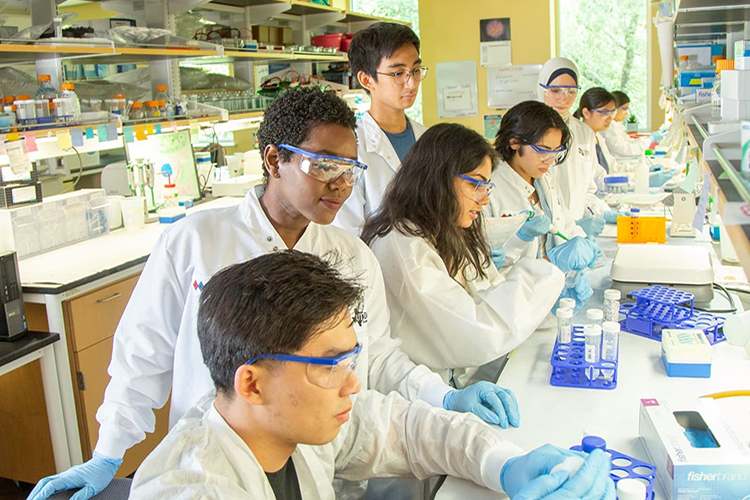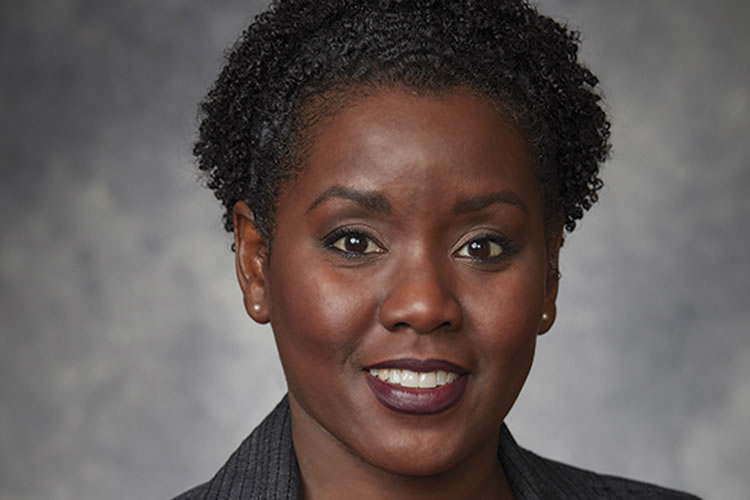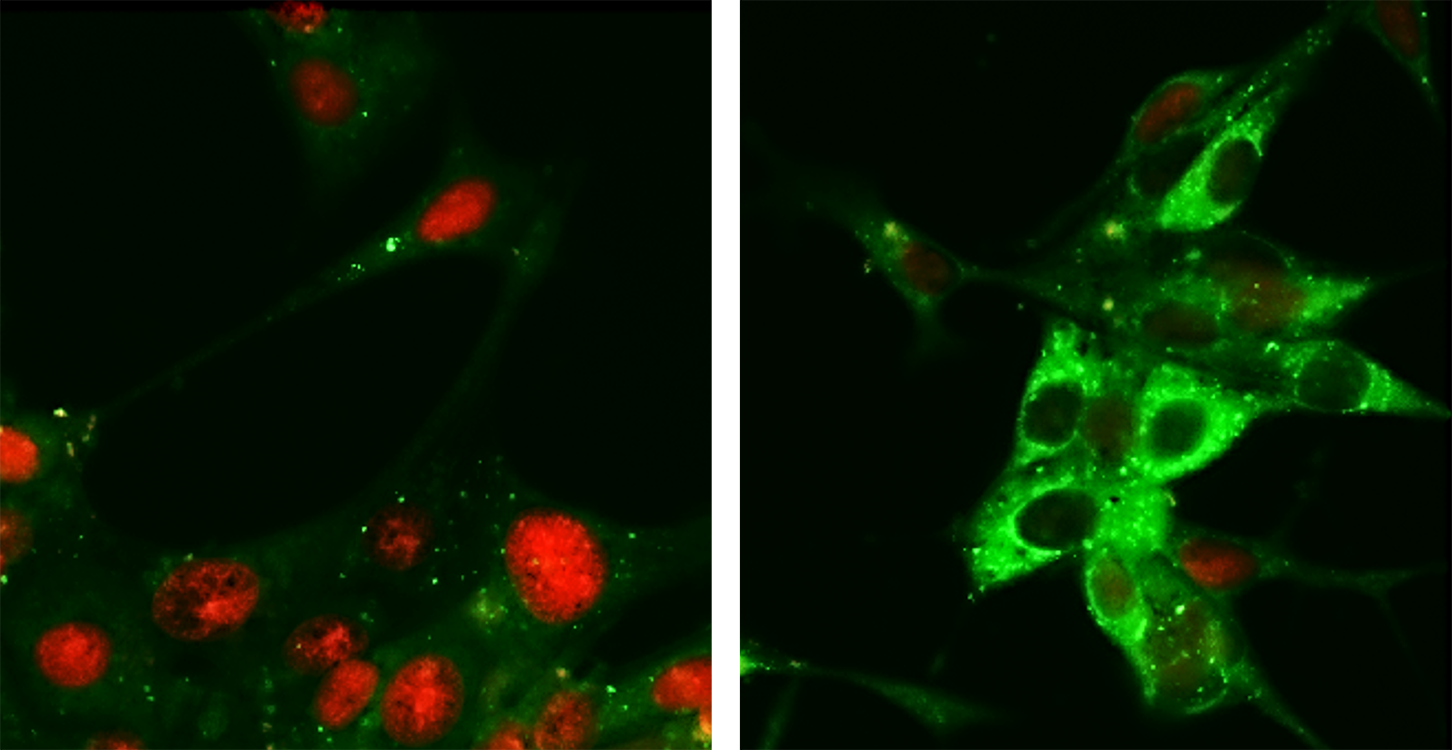
Aug 2, 2021 by Haywood McNeill
Like a sleuth following a trail of clues, biologist Dr. Nikki Delk reviews the evidence. She’s closing in on a killer.
But this one is wily, often executing a breathtaking, last-second escape when cornered.
According to the American Cancer Society, breast and prostate cancer are the most diagnosed cancer type in U.S. women and men, respectively, and the second-leading cause of cancer deaths in those groups. They also are the target of Delk’s investigation.
“My lab studies the role of inflammation in breast and prostate cancer progression and treatment resistance,” said Delk, associate professor of biological sciences and Fellow, Cecil H. and Ida Green Professor in Systems Biology Science at UT Dallas.
Her team has made a number of discoveries.

“Our research is focused on an inflammatory protein called interleukin-1 [IL-1], a cytokine that affects hormone receptors,” Delk said. “Hormone receptors, like estrogen, progesterone and androgen receptors, are what promote the growth and proliferation of breast and prostate cancer cells.
“We found that acute exposure to IL-1 prevents the gene expression and accumulation of these hormone receptors. At first glance, this is good, because IL-1 kills the cancer cell by ridding the cell of its hormone receptors.
“However, we also discovered that the cancer cells can circumvent death by eliciting compensatory survival pathways that are also induced by acute IL-1 exposure. Furthermore, we discovered that if the cancer cells are exposed to IL-1 chronically, or long term, the cancer cells evolve resistance to IL-1 and restore their hormone receptors. During this evolution, the cancer cells also acquire other proteins that may make the cancer cells more aggressive. We are currently studying the consequences of this cancer cell evolution in my lab,” Delk said.
Delk’s research is supported by UT Dallas, the National Cancer Institute and the American Cancer Society.
Recently she ran a successful crowdfunding campaign in conjunction with Comets Giving Day that raised more than $10,000 to support student researchers in her lab.
Additionally, Delk is planning an Arts4Science art auction event to raise awareness and money for her cancer research. The event is scheduled for August 28th in Dallas’ Design District. Follow Arts4Science on Instagram for more information or contact Dr. Delk at nikki.delk@utdallas.edu or visit UTD Marketplace to purchase tickets.
The Delk lab is a busy place – in addition to conducting research, Delk is a strong proponent of mentoring. Her lab provides research opportunities and mentoring to high school, undergraduate and graduate students at UT Dallas and from other institutions.
“My doctoral students have thesis projects that they will complete to earn their PhD. My master’s and undergraduate students primarily assist the doctoral students, but can have their own research projects as well. In addition to my direct mentoring of students, I institute peer mentoring. Everyone – doctoral to undergraduate – has an opportunity to train and mentor each other and new students in the lab,” she said.
“My students will eventually graduate from my lab and become leaders in their fields. The advantage of peer mentoring is that they develop leadership, interpersonal and management skills that they can use no matter what career path they ultimately choose. Peer mentoring also builds camaraderie because they look out for one another and help each other with their respective research projects,” Delk said.
She described her lab as “culturally diverse and inclusive,” explaining that representation is very important. “Most requests to join my lab come from women. I believe that is due, in part, with being able to see themselves and their own career possibilities in me, an African American female.”
To that end, Delk said, UT Dallas’ “living our values” initiative is a great effort toward diversity, equity and inclusion in all aspects of university business and culture, including in science.
“One goal is to increase the number of underrepresented minority and women faculty at UT Dallas. I am excited to do what I can toward that goal,” Delk said.
As Delk continues to work hard in the fight against cancer, her lab does not fight alone.

“As researchers, we have to share our discoveries with the scientific community and the public,” she said. “This leads to collaborations, which lead to better science. Currently, my lab collaborates with researchers at MD Anderson Cancer Center, UT Southwestern Medical Center, UT Health Science Center San Antonio and faculty within UT Dallas. These collaborations enable us to think about our research more broadly and creatively. Discovery requires a multipronged approach.”
There are more than 100 cancer types that affect people. And cancer often is described as a wound that does not heal.
“Cancerous tumors elicit an immune response that is meant to kill the cancer cells,” Delk said. “This is akin to your body trying to fight off an infection, like COVID-19, or heal a cut on your hand. This immune response involves cytokines, like IL-1, and can be referred to as a ‘cytokine storm’ in severe cases, such as COVID-19 infection. But if the ‘storm’ does not subside, that could lead to chronic inflammation that makes the cancer worse.
“With all of the ways our bodies are exposed to inflammation – infections, injury, environment, diet, stress, autoimmune diseases – it is important that we discover how cancer cells are able to use inflammation for their divisive benefit.”
Laboratory discoveries are the building blocks that lead toward a seminal breakthrough.
“Our approach is to discover the changes that the cancer cell is making when exposed to inflammation. It’s a race with evolution. While acute IL-1 gets rid of hormone receptors, both acute and chronic IL-1 exposure upregulate other proteins that help cancer cells survive. Our goal is to discover and keep up with these evolving changes to ultimately find new interventions and therapies to kill the cancer cells,” Delk said.
Help us leave the planet a better place for future generations. Your support for the School of Natural Sciences and Mathematics funds scientific discoveries with real-world applications, student and faculty recruitment, and academic scholarships.